Titbits and News from the Mare Nostrum
In Ancient Anatolia: The World's First Company?
Think companies are a modern invention? Think again! The Kaneshite tablets reveal details of, possibly, the world's first company, established in Anatolia with a 12-year plan and gold capital. The cuneiform tablets reveal details of this ancient business venture.
By Nick Nutter on 2024-05-29 | Last Updated 2025-12-23 | Titbits and News from the Mare Nostrum
This article has been visited 4,197 times

Company Articles of Incorporation circa 1920 BC?
Excavations at Kultepe, an ancient trade centre dating back 6,000 years, has yielded a treasure trove of cuneiform tablets, inscribed clay documents offering a glimpse into the commercial practices of the Assyrians during the Middle Bronze Age (around 1920 BC).
Do you enjoy my articles? For your reading pleasure, this website does not carry third party ads. You could help me write more articles by buying me a cup of coffee.
These tablets, meticulously unearthed over the past 75 years, number over 20,000 and provide a remarkably detailed record of financial transactions. Professor Kulakoglu, a leading scholar of the period, and head of the excavations at Kultepe, suggests most tablets served commercial purposes, documenting everything from caravan expenses to credit and debit relationships.
But one particular tablet stands out. It reveals what could be considered the world's first company, established in Anatolia with a substantial capital of 15 kilograms of gold. This venture boasted 12 partners, each contributing varying amounts to become shareholders.
The document goes further, outlining the management structure. A merchant named Amur Ishtar oversaw the capital for a fixed period of 12 years, with profits being shared amongst the partners in a 1:3 ratio (one part for Amur Ishtar, three parts for the shareholders). The agreement stipulated the importance of long-term commitment.
"If a shareholder wished to withdraw their investment before the 12-year term," explains Professor Kulakoglu, "they would receive only 4 kilograms of silver for every 1 kilogram of gold invested. This clearly incentivised long-term participation and ensured the company's stability."
The significance of this find lies in its timing. Dated to after 1920 BC, the tablet coincides with the emergence of writing in Anatolia. Professor Kulakoglu emphasizes this point, "These tablets represent the earliest documented instance of a company structure in Anatolia, essentially a company deed from a bygone era."
The discovery at Kultepe offers a fascinating window into the ingenuity of ancient civilisations. It demonstrates that concepts like shared capital, profit sharing, and long-term investment were not inventions of the modern world, but practices employed millennia ago.
References
Prof. Dr. Fikri Kulakoglu is head of excavations at the Kültepe ruins.
Ezer, Sabahattin. (2013). Kültepe-Kanesh in the Early Bronze Age. 10.5913/2014192.ch01.
The Bronze Age Karum of Kanesh c 1920 - 1850 BC
Do you enjoy my articles? For your reading pleasure, this website does not carry third party ads. You could help me write more articles by buying me a cup of coffee.
 Dana Island, oldest ancient shipyard
Dana Island, oldest ancient shipyard A Bronze Age Courier Service
A Bronze Age Courier Service Cyrene's Lost Treasures
Cyrene's Lost Treasures The Invisible Enemy
The Invisible Enemy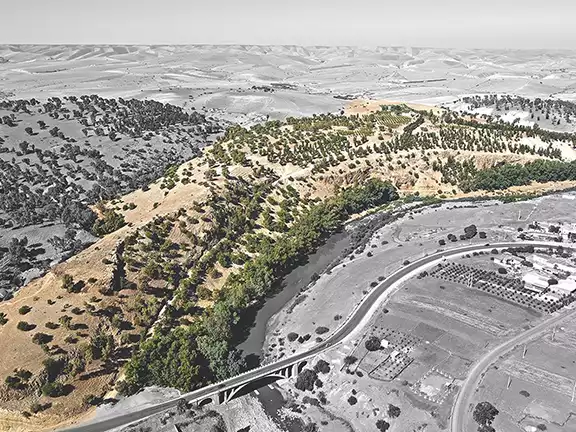 The Copper Age Site of Oued Beht
The Copper Age Site of Oued Beht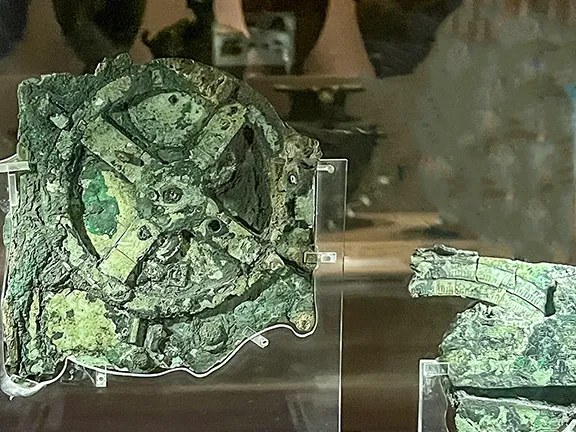 How the Antikythera Mechanism Works
How the Antikythera Mechanism Works Kach Kouch and Iberia
Kach Kouch and Iberia Mediterranean Diet Evolution
Mediterranean Diet Evolution Hidden Colours of Ancient Statues
Hidden Colours of Ancient Statues Cleopatra: Egypt's Last Pharaoh
Cleopatra: Egypt's Last Pharaoh Alexandria Library's True Fate
Alexandria Library's True Fate Six Great Ancient Libraries
Six Great Ancient Libraries Ancient Greek Technology
Ancient Greek Technology Broadening Horizons
Broadening Horizons The Nadītu Investors of Sippar
The Nadītu Investors of Sippar New light on Hadrian
New light on Hadrian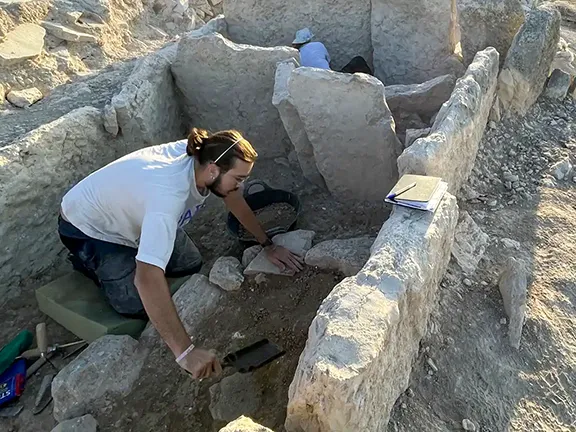 The Dolmens of La Lentejuela Teba
The Dolmens of La Lentejuela Teba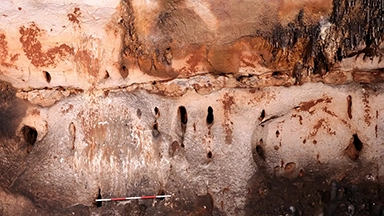 New Cave Art Discovery in Valencia region
New Cave Art Discovery in Valencia region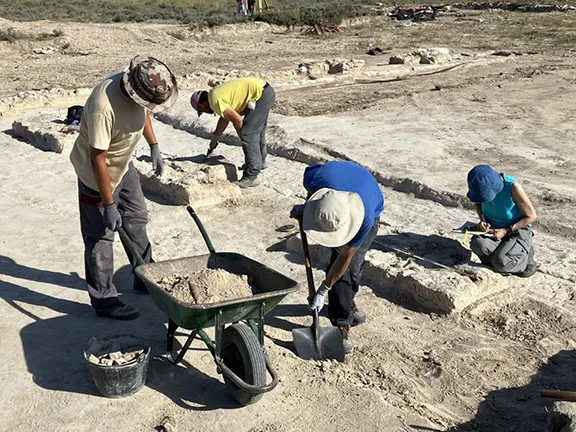 La Cabaneta Oldest Roman Forum in Iberian Peninsula
La Cabaneta Oldest Roman Forum in Iberian Peninsula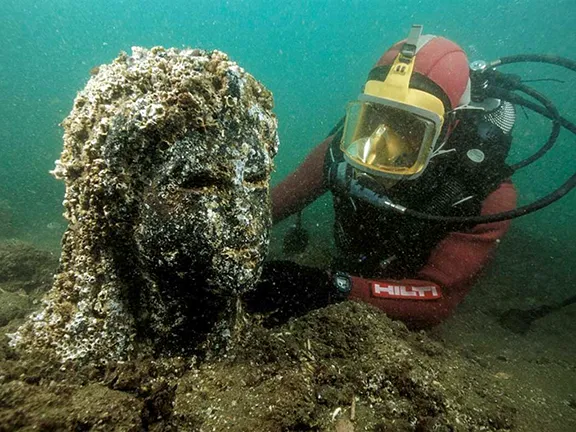 New Discoveries at Ancient Sunken City of Thonis-Heracleion
New Discoveries at Ancient Sunken City of Thonis-Heracleion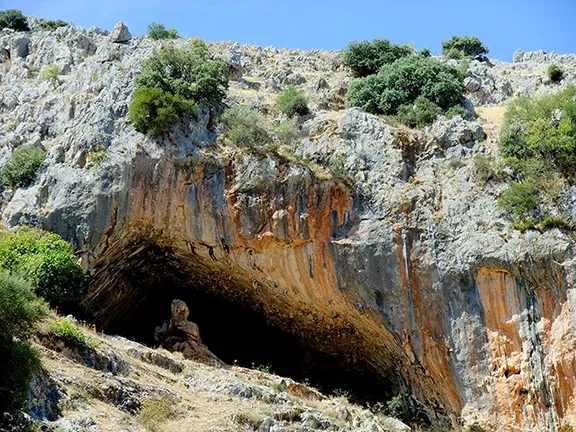 Europe's Oldest Shoes Found: 6,000-Year-Old Sandals Woven from Grass
Europe's Oldest Shoes Found: 6,000-Year-Old Sandals Woven from Grass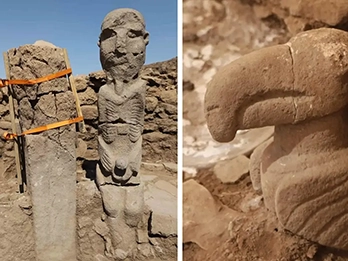 Discoveries at Gobekli Tepe and Karahan
Discoveries at Gobekli Tepe and Karahan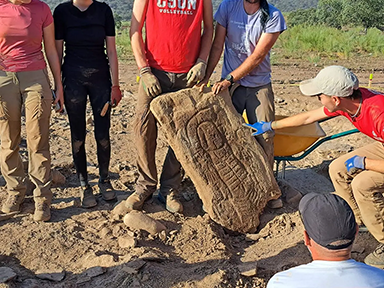 Decorated Stelae found in Canaveral de Leon, Spain
Decorated Stelae found in Canaveral de Leon, Spain The Nebra Sky Disc: A Bronze Age Calendar
The Nebra Sky Disc: A Bronze Age Calendar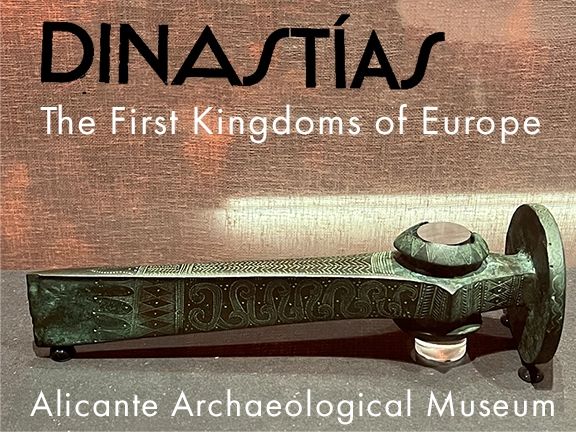 New Exhibition at the Archaeological Museum in Alicante
New Exhibition at the Archaeological Museum in Alicante Bronze Age: A Golden Age for Jewellery
Bronze Age: A Golden Age for Jewellery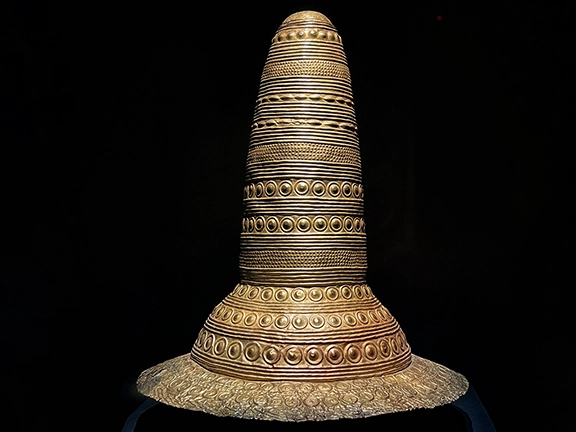 The Golden Hat of Schifferstadt
The Golden Hat of Schifferstadt